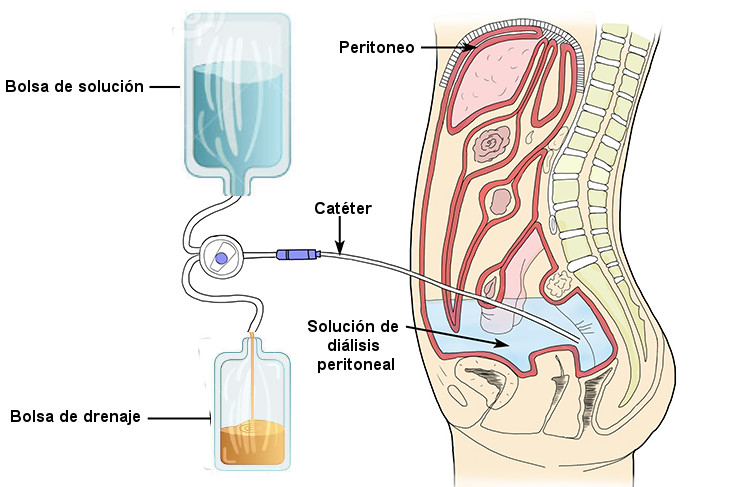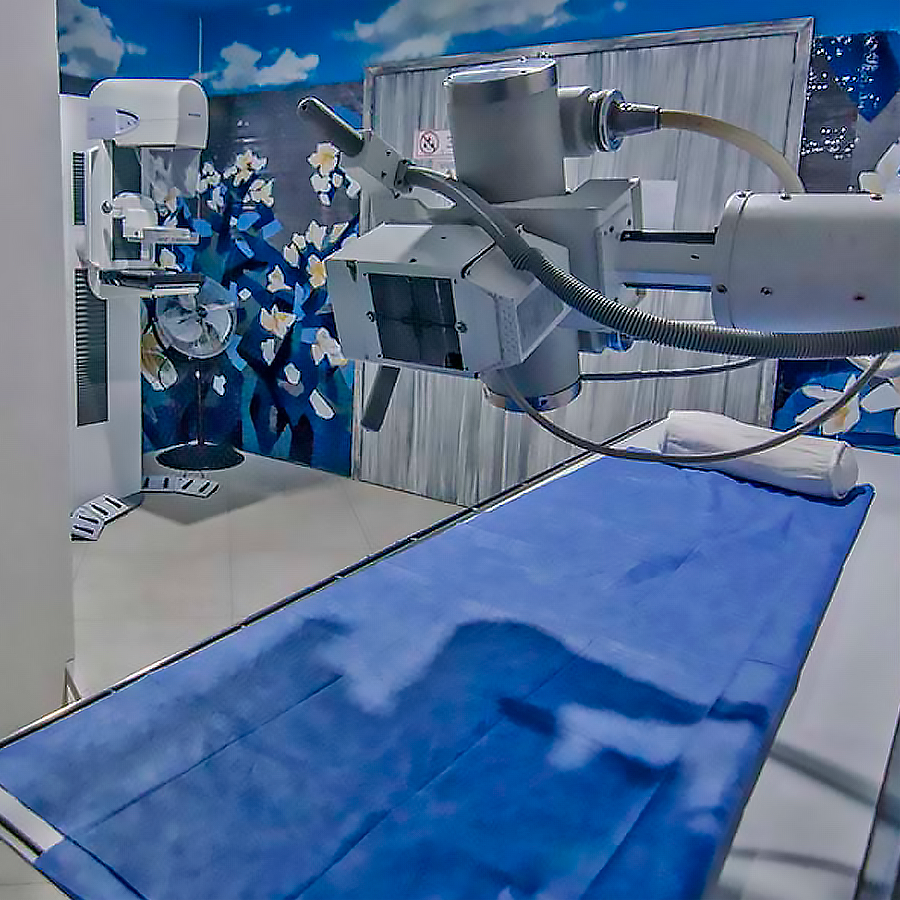DIÁLISIS PERITONEAL
It is a way of removing waste from the blood when the kidneys can no longer perform that function properly. This procedure filters the blood in a different way than hemodialysis, which is the most common procedure for filtering the blood.
During peritoneal dialysis, purifying fluid is circulated through a tube (catheter) into part of your abdomen. The tissue that lines the abdomen (peritoneum) acts as a filter and removes waste from the blood. After a certain period of time, the fluid with the filtered waste flows out of the abdomen and is discarded.
These treatments can be done at home, at work, or while traveling. But peritoneal dialysis is not an option for everyone with kidney failure. You need to have manual dexterity and the ability to care for yourself at home, or have a reliable person to take responsibility for your care.
Why is it done?
You need dialysis if your kidneys are no longer working well enough. Kidney damage typically progresses over several years as a result of long-term illnesses, such as:- Diabetes
- High blood pressure
- Kidney inflammation (glomerulonephritis)
- Multiple cysts in the kidneys (polycystic kidney disease)
- Greater independence and flexibility in lifestyle. This can be especially important if you work, travel, or live far from the hemodialysis center.
- A less restricted diet. Peritoneal dialysis is performed more continuously than hemodialysis, resulting in less potassium, sodium, and fluid buildup. This allows you to have a more flexible diet than you can with hemodialysis.
- Longer residual renal function. People on peritoneal dialysis may retain kidney function for a little longer than people on hemodialysis.

